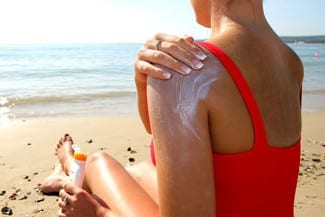
WEATHER-related sick days costs the Spanish economy €360 million per year, a pioneering study has found.
Researchers at the Barcelona Institute for Global Health (ISGlobal) analysed 16 million occupational hazards that occured in Spain over a 20-year period.
They found that extreme bouts of cold and hot weather increased the risk of injury by 4% and 9% respectively.
It means the rise in temperatures thanks to global warming could equate to greater economic loss for the Spanish economy.
The most common types of injuries were bone fractures and superficial injuries.
“This suggests that the underlying mechanism could be related to impaired concentration or judgement, which would affect occupational safety,” noted a researcher.
Moreover, temperature-related effects were not limited to the day of exposure; a ‘pattern of delayed impact’, possibly caused by cumulative fatigue and dehydration, was observed in the days following exposure to extreme weather.
The study also concluded that women appear to be more vulnerable to cold and men to heat. The youngest workers were the most vulnerable to heat, possibly because they tend to do more physically demanding work.
The study found that temperature-related loss of working days had an annual cost of more than €360 million, representing 0.03% of Spain’s gross domestic product in 2015. Moderately high temperatures contributed the most to the economic losses.
“In the present context of climate change, these results indicate that public health interventions are needed to protect workers,” concluded ISGlobal researcher Xavier Basagaña, the study coordinator.
“Most workplace injuries can be attributed to moderate heat and moderate cold. This shows us how important it is for public health policies and plans to take moderate temperature ranges into account, since they are more common than extreme temperatures and account for a larger share of total injuries.”
Preventive measures that could be incorporated into public health policies include restricting work during the coldest and hottest hours, taking rest breaks, ensuring proper hydration and wearing appropriate work clothes.
Click here to read more Spain News from The Olive Press.








